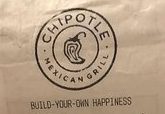1 March, 2020, Rooke Chapel, Bucknell University
Galatians 5:13-18, 22-25
We are together here at the end of Black history month and at the beginning of Women’s history month. In this space and at this time, I feel compelled to call some names of folks who have gone on to be saints, to be our cherished ancestors. Nanny of the Maroons. Sojourner Truth. Harriet Tubman. Yaa Asantewaa. Ida B. Wells. Rosa Parks. Fannie Lou Hamer. June Jordan. Audre Lorde. Shirley Chisolm. Toni Morrison. Carmen Gillespie. We are blessed that they are our ancestors.
Let us pray. Oh God, may the words of my mouth and the meditations of our hearts be acceptable in your sight, our Strength and our Redeemer. And those gathered who could said, Amen.
I was excited to learn that the theme of contemplation this semester is “Fruit of the Spirit.” Nothing is quite as illustrative of new weather, new possibilities, of alchemy, magic, growth, change, transformation as fruit. And I’ve been doing a lot of thinking lately about transformation. I’m interested in transforming spaces and relationships, economies of power and privilege, experiences and contexts of marginality and oppression, gluten-free flours into fluffy croissant… For me the process of transformation is at once magical and adventurous, filled with imagination, grounded by a belief in someones, somethings, some ways, sometimes… better.
The Galatians weren’t eating well. And as a result, they weren’t getting the essential vitamins and minerals that they needed for a healthy body. Paul was trying to deal with this in his letter.
In the end of the verses read for today, Paul teaches that the fruit of the Spirit is love, joy, peace, forbearance, kindness, goodness, faithfulness, gentleness and self-control. Against such things there is no law.” The FRUIT, he says. Singular. Not “fruits” and then this list, but fruiT. We have to ask – or at least I do – how big is it? Is it like a grapefruit? A cantaloupe? A pumpkin? I mean, what kind of fruit is all of those things at once? But then, maybe that’s the wrong question. Maybe we should be thinking about something else. So let’s meditate together this morning on the question, “What is the seed of the fruit of the Spirit?” Now, in the style of black church, of call and response traditions, I want you to turn to your neighbor and say, “neighbor,” “what is the seed,” “of the fruit of the Spirit?” And turn to another neighbor and say, “I don’t know but it must be huge.” Just kidding.
Continue reading “Prof. Nikki Young – “What is the seed?””